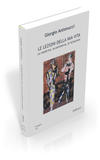About the Department
DEPARTMENT OF INTERNATIONAL STUDIES
OVERVIEW
One of the crucial concerns shared by the Faculty of Political Science and the Department of International Studies (henceforth DIPSI) is the need for a stronger focus on interdisciplinarity. To this purpose, the DIPSI coordinates and carries out research activities for a deeper knowledge of the contemporary world in its international and trans-national perspectives. This research involves a thorough analysis of issues such as integration, globalisation, and the diversification and localisation of social, political, cultural and institutional processes, with focus on further relevant issues such as demography, economics, law, languages, politology, sociology and history.
In order to discuss the transformations of the structures, behaviour and cultural traditions of contemporary society, the DIPSI aims to become a research centre – in a comparative perspective and on an international scale – for a detailed analysis of contemporary societies, from the historical roots to the political, institutional and socio-cultural evolution. Therefore, the DIPSI intends to develop most valuable cultural tools for a deeper understanding of the phenomena lying behind the establishment and transformation of such contemporary societies.
Find below the main research activities carried out by the DIPSI via an approach mostly interdisciplinary, yet specific and relevant to the different discipline areas involved:
- the transformations of politics and society, concerning the institutions, ideologies and systems of political ideas of the modern and contemporary world, as well as communication in politics, evolution of the political classes, government levels, civil society, and public opinion;
- the international system, the relations between its components and the economic and geopolitical dynamics, with particular emphasis on the demographic phenomena;
- international security, human rights, democratisation and international cooperation processes, with focus on a historical and theoretical reflection on issues such as war, world peace, and the intercultural dialogue.
- evolution of women’s issues in a synchronic and diachronic perspective, with a historical analysis of the political movements and of the scientific research encompassed within theGender Studiesframework;
- social, political, institutional, economic and linguistic models defining cultural, social and historical diversities at a local and national level;
- historical, socio-political, economic, socio-linguistic dynamics and institutional aspects concerning migration and integration of foreigners;
- modern and contemporary Europe and European institutions, in a perspective bringing out both the identitarian aspects, based on the elements in common, as well as local and national diversities, in a pluralistic context implying the multi-faceted implications of the integration processes.
In its diverse scientific aspects, the DIPSI aims to strengthen such research activities in a dimension involving a deeper knowledge of other worlds and cultures, based on comparative and empirical research. In an effort to go beyond a superficial multidisciplinary analysis, the DIPSI intends to develop new approaches and methodologies, taking into account the complexities of the latest trends leading towards the persistent evolution of the global society. Hence the need to analyse not only written reference material, but also those audio-visual sources that are so influential and representative of the modern age. Crucial to the valorisation of the audio-visual material is the role and co-operation of one of the main resources of the DIPSI, the “Laboratorio di Ricerca e Documentazione storica audio-visiva” (Research Laboratory for Historical Audiovisual Documentation).
As a centre promoting innovative and original research activities, the DIPSI cooperates - in an exchange involving valuable synergies - with the Degree Courses in Political Science and in Expert Advisor for Peace, Cooperation and Development Processes, with the Second-Degree Course in International Relations, as well as with the wide range of Master's Degrees currently available aimed at scientific formation in socio-political and international fields. Ever since its establishment, the DIPSI has also played a crucial role in supporting the teaching activities of the Faculty of Political Science. To this purpose, the DIPSI cooperates with the recently-established Doctoral School in Political Science, whose research interests are consistent with the Departmental research framework.
Due to its international and cosmopolitan orientation and multidisciplinary vocation, the DIPSI has fostered contacts and partnerships with like-minded Italian and international institutions, by promoting student and academic staff exchange at European and international level. Therefore, the teaching activities of subjects belonging to the Departmental discipline areas have also taken advantage of such intercultural perspective.


